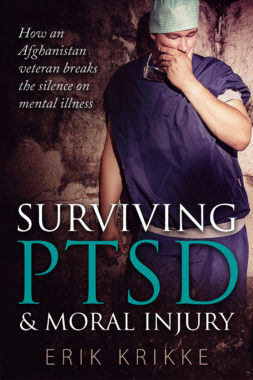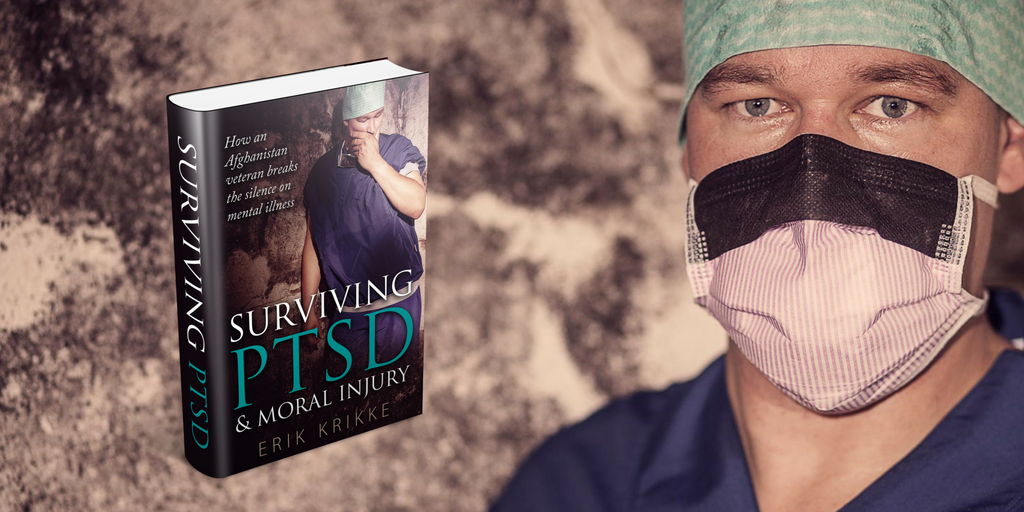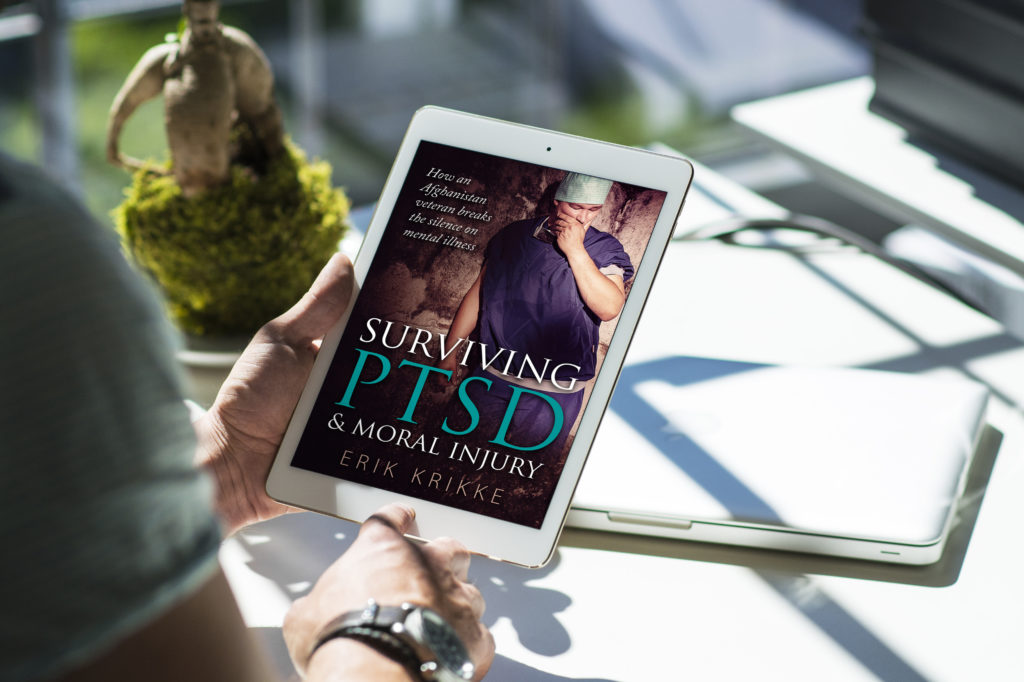
An Afghanistan veteran breaks the silence on mental illness
Surviving PTSD & moral injury. How an Afghanistan veteran breaks the silence on mental illness is an important book on mental illness and how to overcome.
A vast majority of people will have to deal with one or more traumatic events in their lives
A portion of them will experience post-traumatic symptoms. These are often short-lived but some people develop a post-traumatic stress syndrome (PTSD). The fight against PTSD is an extremely tough but often invisible battle, for both the person who suffers from it and the people around them.
Both heartbreaking and hopeful, Surviving PTSD & Moral Injury tells Erik’s personal story, who was traumatised during his deployment in Afghanistan where he worked as an operating theatre assistant. In a raw and gripping manner he describes the events that would lead to his PTSD and the crushing impact it has on a person and on those around them.
Surviving PTSD and Moral Injury is an important book on mental illness and how to overcome this
Erik pulls no punches in describing how he became isolated, slowly breaking down until suicide seemed to be the only option he had left. As a veteran, a medic, but above all as a human being he tells us how he battled with himself and his memories and how is now living his life fully again. His story provides recognition, acceptance and hope for people who have PTSD, but also for their partners, families and friends. Erik’s story is personal, insightful and inspiring.
Krikke was lucky to have been able to recognize that something wasn’t right with the help of his family, friends, and therapists
Erik has a new mission now he is home again. He wants to touch and inspire others with his story and raise awareness for working through trauma and PTSD.








